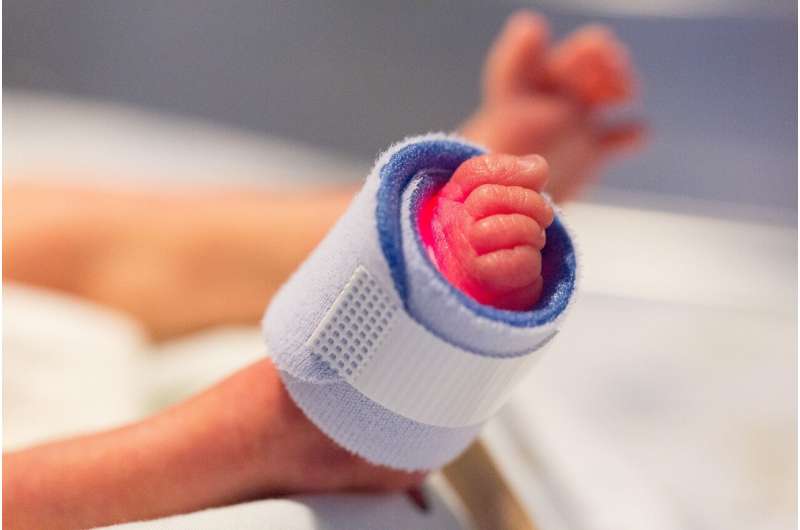This article has been reviewed according to Science X's editorial process and policies. Editors have highlighted the following attributes while ensuring the content's credibility:
fact-checked
peer-reviewed publication
trusted source
proofread
Maternal STIs linked to reduced birth weights in Papua New Guinea

Low birthweights pose major concerns in Papua New Guinea (PNG) as a leading risk factor for newborn deaths.
A new study has found that sexually transmitted infections (STIs) can significantly reduce the weight of babies at birth. The findings are published in the journal Med.
The study is the first to look at the impact of Mycoplasma genitalium (MG)—a sexually transmitted bacteria that can infect the reproductive system—on lower birth weights, relative to other STIs such as gonorrhea and chlamydia.
Dr. Michelle Scoullar, Principal Investigator in Burnet's Healthy Mothers, Healthy Babies program, said women in PNG had one of the highest rates of MG in the world.
"It has not previously been shown that Mycoplasma genitalium has an effect on birth weight, and we've demonstrated that it can cause harm to the unborn child," she said. "Our understanding is that people are not commonly studying Mycoplasma genitalium, so they're not testing for it, or including it in STI studies, even less so to see the impact on a pregnant person."
The research found MG infection can reduce a baby's birth weight by 167 grams. Co-infections of MG and gonorrhea, at the same time, can reduce birth weight by 442 grams, and a double infection of MG and chlamydia can reduce birth weight by 265 grams.
The impact of STI infections on babies can be as significant as the impact of malaria on reduced birth weights.
"The World Health Organization's average birth weight is typically 3.5 kilograms. In PNG, that average birth weight is already lower than this, so any further reduction is significant," Dr. Scoullar said. "Any issue that causes a baby not to be able to grow as much in pregnancy is evidence of harm to the baby, so addressing treatable factors that can result in lower birth weight is crucial to reducing the risk of infant deaths."
MG is a much lesser-known STI than other curable STIs such as syphilis, gonorrhea, chlamydia and trichomoniasis.
Screening for MG is not currently recommended due to limited knowledge about the infection and its ability to rapidly become resistant to antibiotics, which can increase the complexities of treatment.
"It is important to continue improving our understanding of this infection, so we can better understand how to prevent and treat it," Dr. Scoullar said.
More information: Michelle J.L. Scoullar et al, Mycoplasma genitalium in pregnancy, including specific co-infections, is associated with lower birthweight: A prospective cohort study, Med (2024). DOI: 10.1016/j.medj.2024.05.007




















